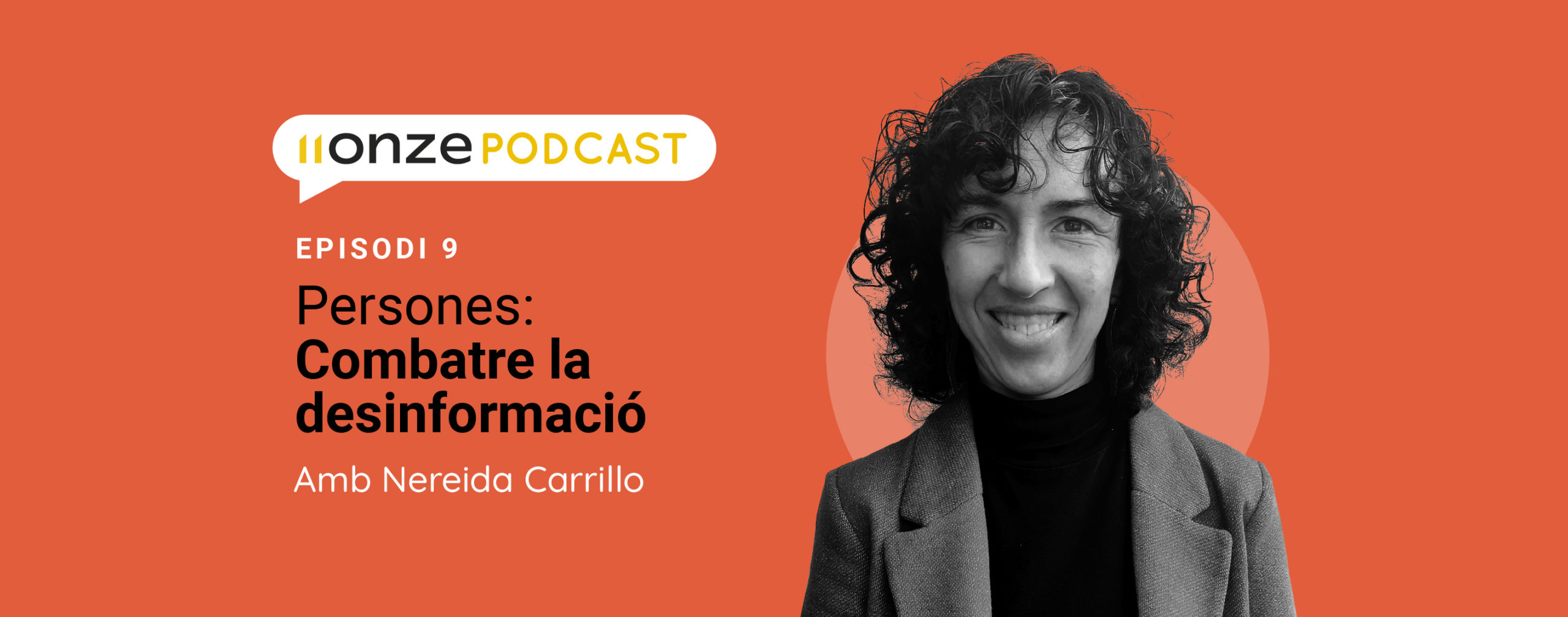

Education, the vaccine against disinformation
We have all been victims and even contributed to it without realising it. Disinformation, understood as manipulated information that is disseminated with the intention to deceive, is a phenomenon as old as communication. Fighting fake news is within the reach of each of us.
“Disinformation has a part of falsehood and a part of hate speech. To combat it, we need to work on respect for the opinions of others, empathy, ethics and conversation.” Nereida Carrillo, journalist and promoter of Learn to Check, warns of the main reason for disinformation: deception. Interests, power and information are mixed in a social and technological context that makes any content of this type go viral and circulate around the world in a matter of seconds. The veracity of information transcends the roles of journalists and is left in the hands of the user.
Disinformation has increased significantly in recent years due to new technologies, which allow information to circulate more quickly and globally. But it is not only social networks that are loudspeakers of disinformation: so are the mainstream media, even if they often find it hard to admit it. Because the phenomenon of disinformation is as old as communication and the will of hegemonic power to impose its narrative. Moreover, any information, Carrillo explains, is always based on the prism provided by the author: “Objective information does not exist, there is always an account of the facts and we explain what is happening in the world through our cultural, gender or age filters,” she reasons.
Convincing with arguments
The Col·legi de Periodistes de Catalunya describes in the first article of the Code of Ethics that it is necessary to report carefully and accurately. Leaving the search for truth to philosophy, both in journalism and in the content created and disseminated by networks, what is sought is honesty and veracity. Information must be plural, it must not be misleading, it must be oriented towards informing and sources must be checked to avoid manipulation.
At the very least, this is what we should be looking for when verifying information. One of the ambitious objectives of Learn to Check is that anyone should be able to contrast the information that reaches them. That is why there is only one way: training in tools and a critical spirit. Thanks to the knowledge that its platform shares openly, anyone can verify, without depending on mediators. This is a way of empowering citizens and achieving, together, to stop disinformation in what is called distributed verification.
The PhD in communication also warns that in the networks we have become accustomed to defending our position from the extremes: “The algorithms of social networks polarise, they place us all at opposite poles and it seems that nuances do not exist, that there can be no exchange or conversations.”
Veracity: you set the filter
In closed environments such as WhatsApp or Telegram, it is very difficult to trace where the information comes from, and this often leads us to confuse trusted sources with reliable sources, explains Carrillo. Reliable sources are those that have been verified and, therefore, are based on veracity, while the former are based on trust in the person who sent them to us. This is the main problem of older people, who let themselves be carried away by trust and verify the information according to who is sending the message and even according to which media is reporting the news.
To combat disinformation, especially in the age of social networks, Carrillo argues that we must return to conversation and learn to disseminate information and, above all, our ideas, in a reasoned way and with arguments. “Lying is a very easy and unethical way of convincing,” she remarks, adding that listening to people who do not think like us, although it may not change your mind, will allow you to understand the other person. More empathy and more veracity to face the era of global communication.
11Onze is the community fintech of Catalonia. Open an account by downloading the super app El Canut for Android or iOS and join the revolution!






Ha sigut molt enriquidor. Crec que avui en dia hi ha molta informació al temps que estem molt desinformats.
Tens raó, Anna. El fenomen de la “infosaturació” o “intoxicació digital”, a conseqüència de la hiper-comunicació (la tendència a la “pan-connectivitat”) comporta conductes compulsives i addictives, i, sovint, ens desinforma, perquè destriar el rigor i la solvència de tota la resta cada cop és una feina més titànica.
I tant! a formar-se s’ha dit, i amb arguments!📑
Moltes gràcies pel teu comentari, Jordi!!!
Molt bo.
Celebrem que t’hagi agradat. Moltes gràcies pel teu comentari, Joaquim!!!
Ah una cosa. El regal de reis O Nadal, si et donen diners hisenda bo que ho declaris perquè és una donació. Sabeu que us dic, que m’enric.
Gràcies per comentar a la plaça Jordi!!!
Si que s’apren
Cert!!! Moltes gràcies, Jordi!!!
Distingir la confiança de la fiabilitat és un gran repte en una societat hiper-informada
Tens tota la raó Francesc, per això és necessari demostrar-ho de forma pràctica.
Excel·lent iniciativa sobre la base de que “Tothom hem d’aprendre”. D’acord amb tot el que s’hi exposa.
De la desinformació el que més em neguiteja és la lleugeresa amb que es comparteix el missatge, moltes vegades sense ni saber de què va.
Moltes gràcies pel teu comentari, Mercè. Mai hem de deixar d’aprendre, que tinguis molt bon dimarts, ens veiem per la Plaça!
Totalment d’acord amb l’ exposicio
Moltes gràcies, Ricard! Que tinguis molt bon dia
Totalment d’acord amb el que s’exposa en l’article
Moltes gràcies, i molt contents que t’agradi l’article, Manuel!
👌
Gràcies, Joan!!!
Amb tanta informació com tenim i rebrem ,no es fàcil saber distingir i com bé han dit filtrar l informació i saber esbrinar la seva Veracitat
Ens cal saber escoltar amb respecte per l’opinió dels altres,i es cert sempre és pot aprendre
Bon dia, Alícia! Cert, sempre es pot aprendre i mai és tard per fer-ho. Que tinguis molt bon dia, ens veiem per la Plaça!